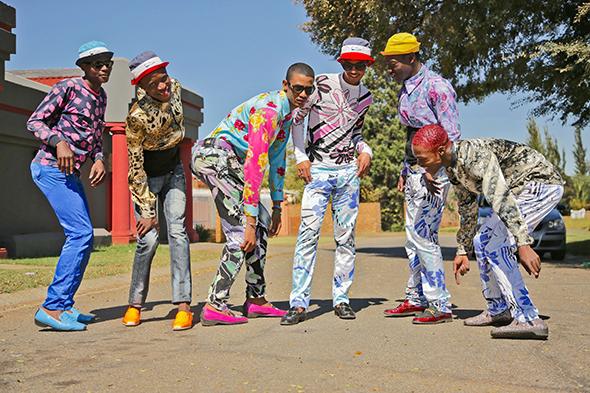When it comes to expressing culture through clothing, Africa is a continent with an abundance of vibrant and diverse traditions. Each African country and even specific regions within those countries have their distinct styles and patterns that are not only visually appealing but also tell a unique story. As an African living abroad, I have always had a deep appreciation for the cultural significance and beauty of African fashion.
Growing up in Nigeria, I was surrounded by a kaleidoscope of colors, patterns, and textures that truly captivated me. From the intricate embroidery of the Yoruba tribe to the bold prints of the Igbo people, I was constantly amazed by the creativity and attention to detail that went into African garments. Every occasion – be it weddings, festivals, or even everyday life – called for a unique ensemble that celebrated our heritage.
One of the most iconic African fabrics is undoubtedly the Ankara print. Known for its vibrant colors and bold motifs, the Ankara fabric has become a symbol of African identity and pride. Its origins can be traced back to the Dutch wax prints and Indonesian batik, both of which were brought to West Africa during the colonial era. However, Africans have embraced this fabric and made it their own, incorporating traditional motifs and designs.
The versatility of the Ankara fabric allows it to be transformed into various styles, from traditional dresses and headwraps to modern tailored suits and accessories. Personally, I love wearing Ankara dresses for special occasions like weddings or cultural events. Not only do they make me feel connected to my roots, but they also serve as a conversation starter, allowing me to share stories about Africa’s rich cultural heritage.
Another famous African textile is the Kente cloth, which originates from Ghana. Traditionally woven by the Ashanti people, the Kente cloth is characterized by its intricate patterns and vibrant colors. Each design holds symbolic meanings, representing different virtues, proverbs, or historical events. The craftsmanship behind Kente weaving is truly remarkable, with weavers meticulously creating each strip of cloth before being sewn together.
Kente cloth is often seen on special occasions such as graduations, weddings, and festivals. It holds great significance in Ghanaian culture, symbolizing prestige, unity, and cultural pride. Whenever I see someone wearing Kente, I instantly feel a sense of connection and admiration for their embrace of African culture.
Not only do African textiles tell stories, but they also empower local communities. The production and sale of African fabrics provide income for many individuals, from the cotton farmers and weavers to the designers and tailors. By supporting African fashion, we contribute to the preservation and promotion of these artistic traditions, passing them down to future generations.
In recent years, African fashion has gained significant popularity on the global stage. Many African designers have showcased their collections on international runways, further solidifying the impact and influence of African fashion. It is gratifying to see the world embracing and appreciating the beauty of African textiles and designs.
When I wear African clothing, I feel a sense of pride, connection, and representation. It is a way for me to honor my heritage and celebrate the vibrant diversity of the African continent. It allows me to stand out and make a statement, expressing my identity in a world that often disregards or misunderstands Africa.
As African fashion continues to evolve, I am excited to see how the next generation of designers will push boundaries and fuse traditional elements with contemporary aesthetics. African fashion is not confined to specific borders or continents; it is a global movement that celebrates the power and beauty of cultural diversity.
So, whether you are of African descent or simply appreciate the beauty of African textiles, I encourage you to explore and incorporate African fashion into your own wardrobe. Embrace the vibrancy, express your individuality, and celebrate the rich tapestry of African cultures. Because when we wear African clothing, we are not just making a fashion statement; we are telling the world our African story.
